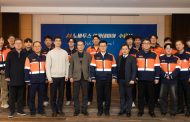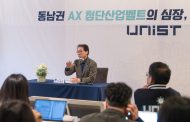The UNIST Office of Research Facilities and Training (ResFacT) hosted the inaugural ‘2025 Research Equipment Experts’ Day for Scientific Innovation‘ at the Main Administration Building and the Engineering Buildings of UNIST, marking a significant step toward bolstering Korea’s scientific infrastructure. Held over two days starting on November 13, the event aimed to enhance the capabilities of research equipment professionals and foster collaborative networks across institutions.
This event was designed to highlight the vital role played by research equipment experts—unsung heroes of the scientific community. More than 300 participants from 79 universities, research institutes, public agencies, and industry gathered to share insights and experiences.
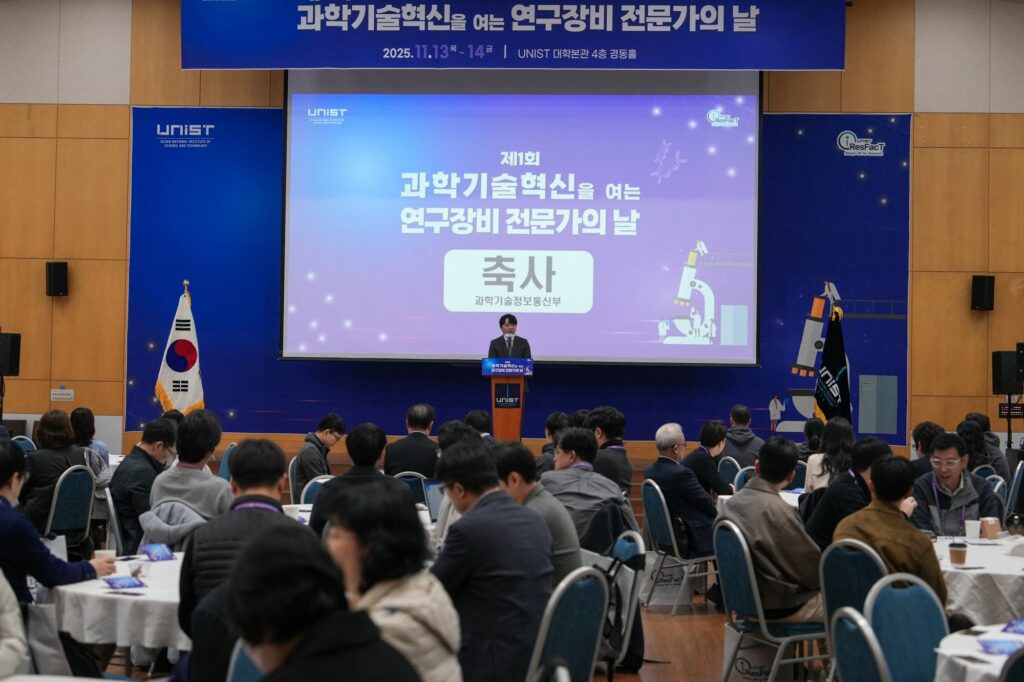
Deputy Director DoChang Kim of MSIT emphasized the critical role of research equipment specialists in his address.
Key attendees included Deputy Director DoChang Kim from the Ministry of Science and ICT (MSIT)’s R&D Assessment and Evaluation Division and Director SungNyun Kim of the National Research Facilities & Equipment Center (NFEC). Both expressed gratitude for the dedication of equipment specialists and emphasized their central role in supporting Korea’s advancement in science and technology.
Deputy Director Kim reaffirmed the importance of Staff Scientists—research equipment experts—and referenced recent national dialogues, including the the National Briefing on Reviving Korea as a Nation of Science and Technology, led by President Jae Myung Lee on November 7 and the ‘3rd R&D Innovation Field Roundtable‘ held at UNIST this past August. He noted that cultivating a stable and supportive environment for these experts is vital for sustained scientific innovation.
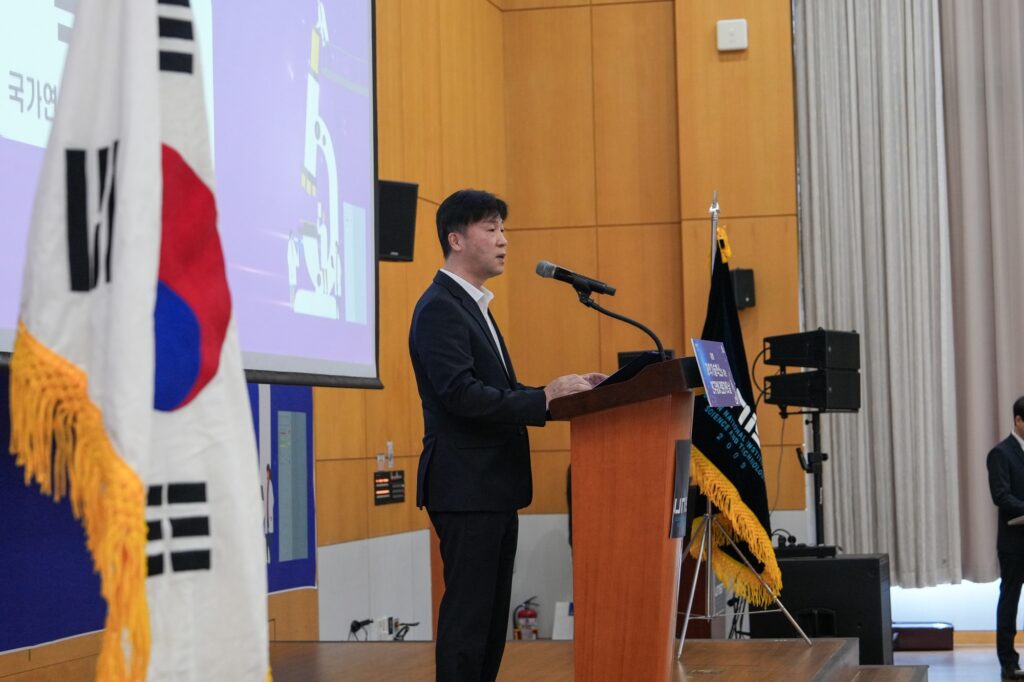
NFEC Director SungNyun Kim highlighted the need for systematic training and development of research equipment professionals during his congratulatory address.
Director Kim of NFEC highlighted the center’s core missions of fostering ‘Sharing and Openness‘ and the systematically developing specialized personnel. He noted that these efforts align closely aligned with government policies aimed at transforming Korea’s research infrastructure. He added that NFEC will continue to work closely with regional research-centered universities, including UNIST, to advance the systematic operation and management of research equipment.
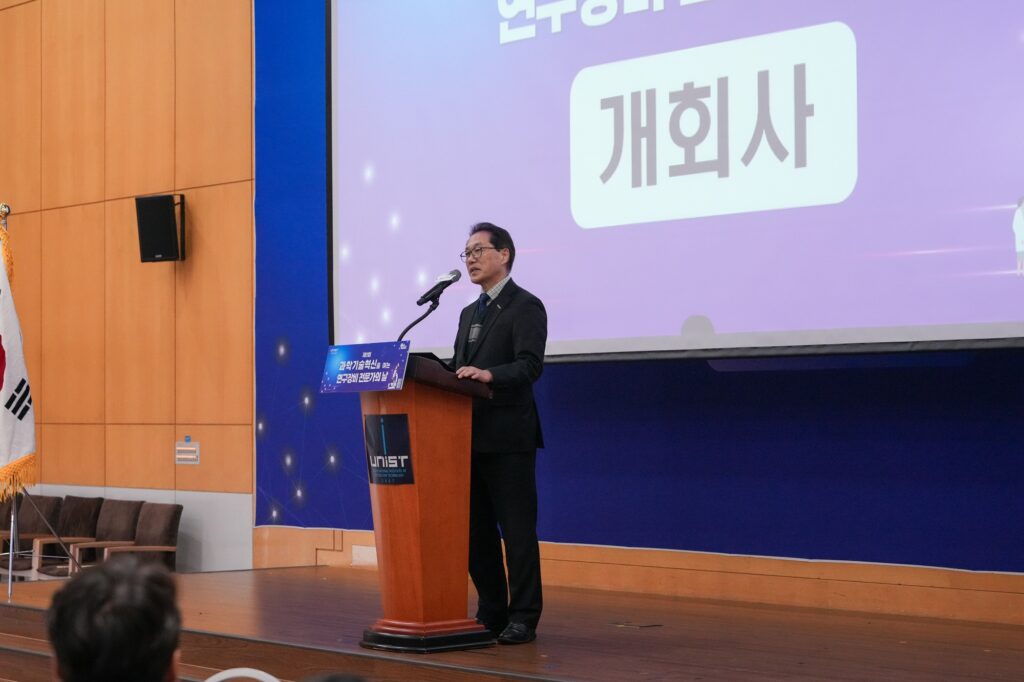
UNIST President Chong Rae Park delivered opening remarks, emphasizing that equipment professionals are a cornerstone of national scientific competitiveness.
UNIST President Chong Rae Park remarked, “Scientific competitiveness stems not only from equipment performance, but from the expertise of the professionals who operate and advance that equipment.” He added, “Since its founding, UNIST has prioritized shared equipment utilization and the development of specialized personnel through ResFacT. We hope this event marks the starting point for broader research infrastructure innovation rooted in the government’s principles of sharing and openness.”
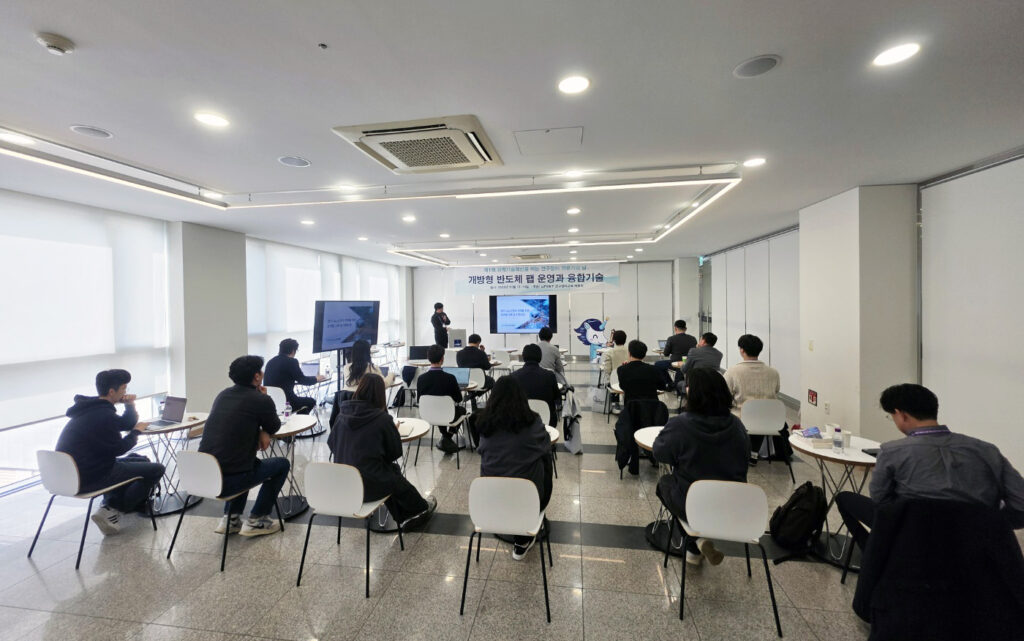
Research equipment specialists shared on-site expertise during the “Open Semiconductor Fab Operations and Convergence Technologies” session.
In the afternoon, nine specialized sessions facilitated active technical exchanges. Topics included electron microscopy , energy materials analysis, NMR spectroscopy case studies, bio-industry support through mass spectrometry, open semiconductor fabs and convergence technologies, smart manufacturing processes, bio-convergence techniques in laboratory animal research, bioimaging industry applications, and AI/HPC infrastructure utilizing GPU and CPU clusters.
On the second day, participants had an opportunity to tour UNIST’s major research equipment and facilities, gaining firsthand insight into the university’s operational systems and on-site management. Attendees responded positively, with many praising UNIST’s systematic equipment operations. KAIST NMR specialist Dr. Jae-Sun Shin commented, “I hope to see more opportunities for institutions to share operational expertise and continue collaborating.”
Moving forward, UNIST plans to strengthen the environment for research equipment personnel to grow as recognized experts. Beginning next year, the university will launch specialized training programs and certification systems dedicated to research equipment professionals, aiming to further enhance their practical competencies and expertise.


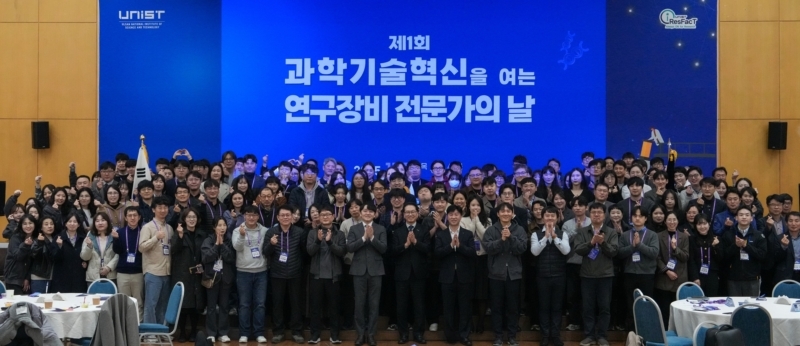








![[2026 UNIST Commencement] UNIST Confers Degrees to 883 Graduates](https://news.unist.ac.kr/wp-content/uploads/2026/02/사진-2026학년도-UNIST-졸업생들이-학사모를-위로-던지며-졸업을-축하하고-있다-1-800x413-190x122.jpg)
